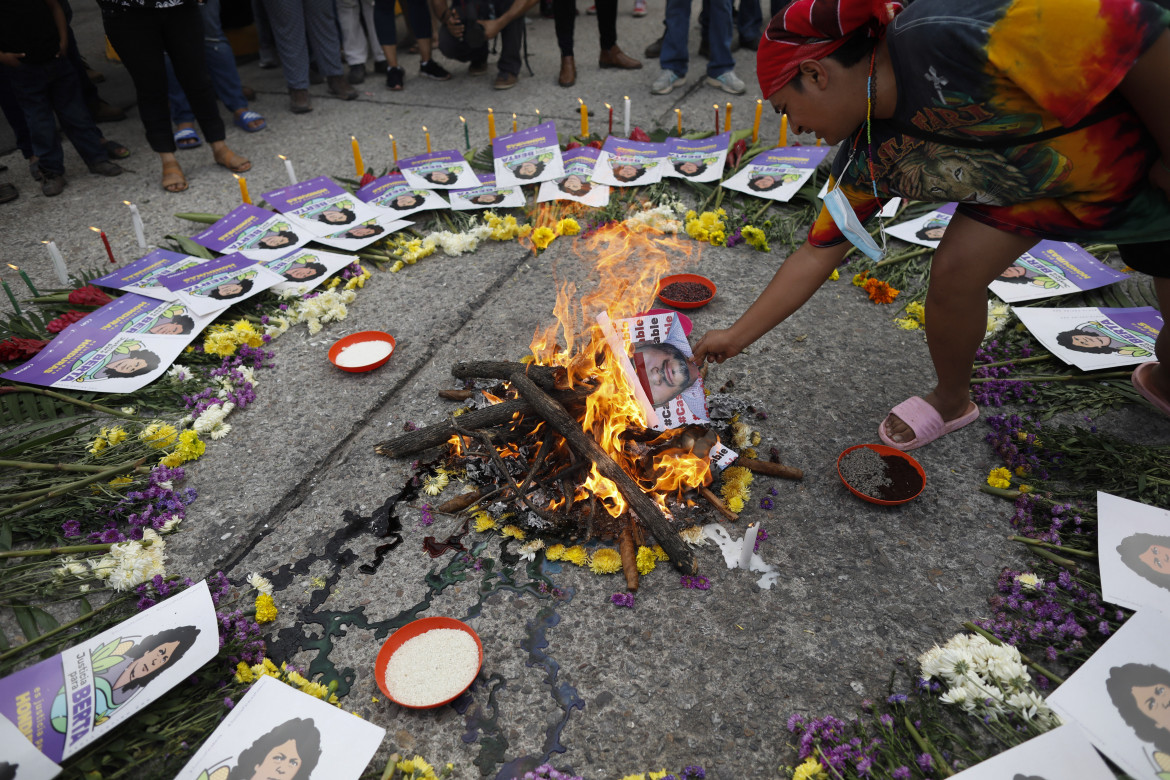Analysis
Justice for Berta Cáceres takes a step forward but not enough
Verdict against corporate kingpin: ‘It is likely that Castillo supervised both the organization and the logistics of the murder of Cáceres.’

David Castillo is a “co-author of the murder of Berta Cáceres,” according to the verdict of the Honduran court. The former president of the Desa company was considered the link between the material executors of the murder of the environmental activist and Lenca community leader (which took place on March 3, 2016) and the ultimate instigators. The sentencing against the former Honduran military officer and businessman (who faces a sentence between 20 and 35 years in prison) will take place on August 3, according to the spokeswoman of the court, Lucía Villars.
The trial of Roberto David Castillo began on April 6, examining the evidence gathered by the supporters of Berta Cáceres establishing a link between the former Desa executive and the killers. It was a major trial, not only to establish Castillo’s role, but to definitively open the way towards finding the people who instigated both him and the killers to act.
“It is likely that Castillo supervised both the organization and the logistics of the murder of Cáceres,” explained Villars. Thus, Castillo is not the ultimate instigator of the murder, but one of the active subjects in its commission, the link between the armed group and those who wanted to end Berta’s life. It is a necessary step forward, but still an insufficient one.
Tensions between the Civil Council of Popular and Indigenous Organizations of Honduras (COPINH), the organization created by Cáceres, and Desa blew up when the company decided to build a highly destructive hydroelectric plant on indigenous land, and obtained, through political pressure and bribery, the contract to build it on the waters of the Gualcarque River, a waterway considered sacred by the local original peoples. In 2015, Berta Cáceres won the Goldman International Prize, considered the Nobel Prize for environmentalists, precisely for her activity against this project.
In December 2019, the first seven convictions were handed down, with sentences between 30 and 34 years, for the members of the armed group that entered Berta’s house and killed her. Castillo is thus the eighth convicted for her murder.
The latest sentence was hailed by COPINH as “a victory for the peoples of the world” and for “solidarity and human rights.” According to the indigenous organization, “the power structures have failed to corrupt the judicial system, at least in this case.” They added that “the criminal organization of the Átala Zablah family, of which the person convicted is only an instrument, has failed to achieve its intended objectives.”
For Berta’s lawyer, Victor Fernandez, this victory was possible only thanks to the struggle for truth and justice led by COPINH that has grown all over the world. He added that there is no need to say thank you to anyone at this point, but rather to continue with determination in the same direction.
According to COPIHN, the legal process will end with a victory only if the instigators of the murder of Berta will also face justice: members of the Atala family, owner of Desa and among the wealthiest and most influential families in the country. Berta’s daughters and COPINH are now calling for the immediate cancellation of the construction permit to build “on the sacred course of the Gualcarque River” and for all the people who were involved in “the illegal and corruption-riddled granting of permits” to be put on trial.
Originally published at https://ilmanifesto.it/berta-caceres-un-passo-avanti-ma-non-basta/ on 2021-07-07
